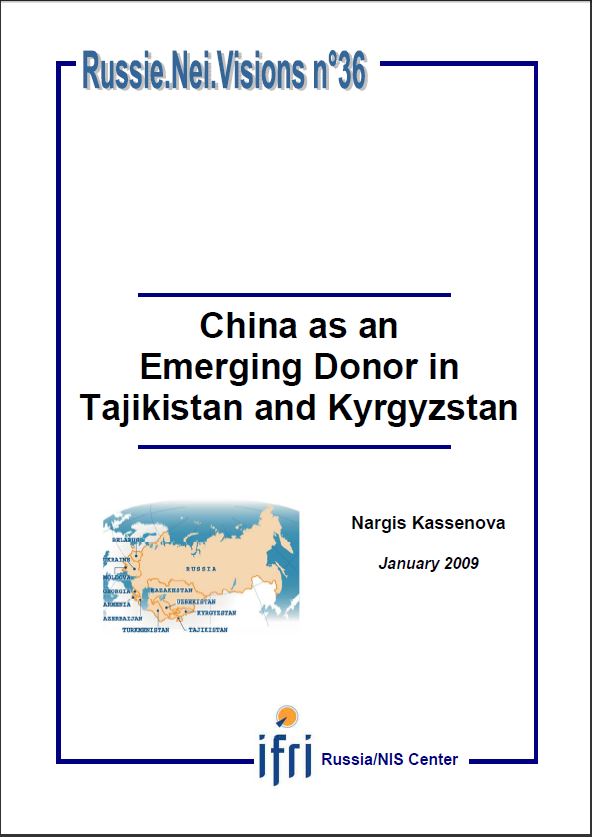China as an Emerging Donor in Tajikistan and Kyrgyzstan

China has become an important provider of development assistance (through grants and soft loans) to Central Asian states. The focus of this study is the two states of the region most in need of aid: Tajikistan and Kyrgyzstan. The paper discusses the characteristics of Chinese assistance, comparing its activities and policies in Central Asia with those in Africa, and draws conclusions about the implications of such growing engagement. Given the European Union's declared interest in the region, notably through its Strategy for Central Asia adopted in 2007, the opportunity is taken to suggest ways in which China's growing development role should be understood in Brussels.
The report is based on research trips to Tajikistan and Kyrgyzstan in June-August 2008 supported by a grant from the Norwegian Ministry of Foreign Affairs. It is part of the Regional Competence-Building for Think Tanks project in the South Caucasus and Central Asia organized by the Norwegian Institute of International Affairs.
Download the full analysis
This page contains only a summary of our work. If you would like to have access to all the information from our research on the subject, you can download the full version in PDF format.
China as an Emerging Donor in Tajikistan and Kyrgyzstan
Related centers and programs
Discover our other research centers and programsFind out more
Discover all our analysesRussia's Asia Strategy: Bolstering the Eagle's Eastern Wing
Among Russia’s strategic priorities, Asia traditionally played a secondary role compared to the West. In the mid-1990s, then Foreign Minister Yevgeny Primakov initiated a rapprochement with China and India. Then, in 2014, deteriorating relations between Russia and the West prompted Moscow to begin its “great pivot to the East”.
Kazakhstan After the Double Shock of 2022: Political, Economic and Military Consequences
The year 2022 represented a dual shock for Kazakhstan. In January, the country faced its most severe political crisis since independence, followed in February by Russia’s full-scale invasion of Ukraine, which cast uncertainty over the borders of post-Soviet states. These consecutive crises profoundly shaped Kazakhstan’s domestic and foreign policy.

How the Russian Army Changed its Concept of War, 1993-2022
The traditional and high-intensity war that has occurred in Ukraine since Russia decided to invade raises a key issue: did post-soviet Russian strategic thought really prepare Russia for waging this war?
Russia's Nuclear Deterrence Put to the Test by the War in Ukraine
From the outset of its “special military operation” (SVO) against Ukraine on February 24, 2022, Russia, which possesses one of the world’s largest nuclear arsenals, has adopted aggressive deterrence measures and a resolutely menacing rhetorical stance.









